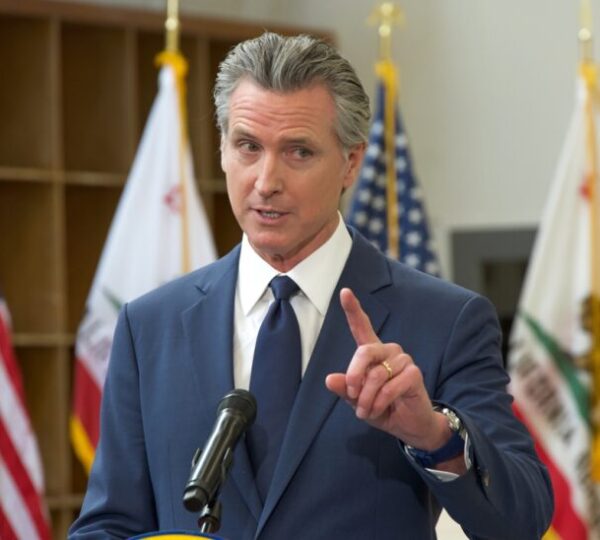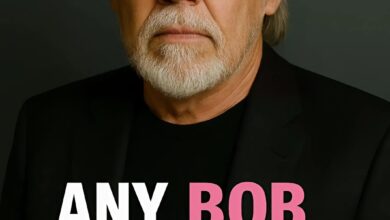LDL. Newsom Draws the Line: Governor Vows to Sue Trump if Federal Troops Are Sent to San Francisco. LDL

Governor Newsom vows to sue Trump if federal troops are deployed to San Francisco.
California is now formally prepared to initiate immediate legal action if Donald Trump proceeds with sending federal troops into San Francisco. Governor Gavin Newsom has intensified his opposition, issuing a sharply worded warning that frames the issue as not merely political, but constitutional and existential for the state’s sovereignty. Newsom’s statements underscore a deepening battle between state and federal authority over the use of military forces on American soil.
The backdrop to this showdown is the Trump administration’s recent deployments of the National Guard to cities like Chicago and Portland, Oregon, which sparked protests and triggered multiple legal challenges. Over the weekend, Trump again voiced his intention to target San Francisco, telling Fox News host Maria Bartiromo that “the difference is I think they want us in San Francisco.” He characterized the city as “a mess” and suggested it was “on my target list,” adding, “San Francisco was truly one of the great cities in the world, and then 15 years ago, it went woke.”
Those claims have been met with sharp rebuttals from state and local officials. In fact, recent data suggest San Francisco is experiencing a resurgence. According to CNBC, overall crime in the city has dropped significantly—down around 30 % compared to 2024, murders are at their lowest level in 70 years, and car break-ins are rarer than at any point in the last 22 years. At the same time, the city is seeing renewed momentum in event bookings and tourism, pressure in the housing market, and the office sector showing signs of recovery.
As someone who served as San Francisco’s mayor from 2004 to 2011, Newsom has been particularly forceful in his opposition to any National Guard deployment. He called the notion of troops in the city “unnecessary” and declared in a public statement: “We don’t bow to kings, and we’re standing up to this wannabe tyrant.” He went on to assert, “The notion that the federal government can deploy troops into our cities with no justification grounded in reality, no oversight, no accountability, no respect for state sovereignty — it’s a direct assault on the rule of law.”

San Francisco’s city leadership has joined in resisting the idea. Mayor Daniel Lurie acknowledged that while fentanyl is the city’s biggest street-level challenge, deploying military troops is not the answer. District Attorney Brooke Jenkins issued a clear statement: “Let me be clear — no local or elected San Francisco leaders want the National Guard deployed to San Francisco at the direction of the Trump Administration.” Local officials have emphasized that federal law prohibits National Guard troops from acting as local police, stressing that even deployment would not permit troops to make arrests or investigate crimes — contrary to some of the suggestions made by Trump’s team.
The legal front is already active. According to the San Francisco Chronicle, the controversy sharpened when Marc Benioff—CEO of Salesforce—publicly suggested the National Guard could serve as police in San Francisco. After sharp backlash, Benioff issued an apology. Meanwhile, Newsom is coordinating with other California officials including Attorney General Rob Bonta and San Francisco City Attorney David Chiu, all of whom have vowed legal action should Trump move forward.

California is not new to legal fights over federal troop deployments. Earlier this year, Newsom and Bonta filed a lawsuit challenging the Trump administration’s federalization of the California National Guard in June, citing violations of the U.S. Constitution—including the Tenth Amendment and statutory limits under 10 U.S.C. § 12406. That case involved roughly 4,000 Guard members federalized without the governor’s consent. While some troops have since returned to state control, approximately 300 remained federalized and were sent to Portland and Chicago for training or support roles. A federal judge in September ruled that the deployment to Los Angeles likely violated the Posse Comitatus Act, which prohibits federal troops from performing domestic law-enforcement functions.
At a Board of Supervisors hearing this week, Mayor Lurie said the city is already preparing a coordinated response team, involving public-safety leaders, the city attorney’s office, and department heads, to monitor and respond to any federal action. “We’ve been thinking about the possibility of the National Guard being deployed to San Francisco since the first day of my term,” he said.
As the rhetoric and litigation escalate, the conflict between state and federal power is playing out in real time. California’s leaders have drawn a clear line: if President Trump sends troops into San Francisco without legal justification, they will move swiftly into court. The question now is whether the federal government will test that line—and if so, how far the courts will go to enforce the boundaries of domestic military deployment in our democracy.
California is now formally prepared to initiate immediate legal action if Donald Trump proceeds with sending federal troops into San Francisco. Governor Gavin Newsom has intensified his opposition, issuing a sharply worded warning that frames the issue as not merely political, but constitutional and existential for the state’s sovereignty. Newsom’s statements underscore a deepening battle between state and federal authority over the use of military forces on American soil.
The backdrop to this showdown is the Trump administration’s recent deployments of the National Guard to cities like Chicago and Portland, Oregon, which sparked protests and triggered multiple legal challenges. Over the weekend, Trump again voiced his intention to target San Francisco, telling Fox News host Maria Bartiromo that “the difference is I think they want us in San Francisco.” He characterized the city as “a mess” and suggested it was “on my target list,” adding, “San Francisco was truly one of the great cities in the world, and then 15 years ago, it went woke.”
Those claims have been met with sharp rebuttals from state and local officials. In fact, recent data suggest San Francisco is experiencing a resurgence. According to CNBC, overall crime in the city has dropped significantly—down around 30 % compared to 2024, murders are at their lowest level in 70 years, and car break-ins are rarer than at any point in the last 22 years. At the same time, the city is seeing renewed momentum in event bookings and tourism, pressure in the housing market, and the office sector showing signs of recovery.
As someone who served as San Francisco’s mayor from 2004 to 2011, Newsom has been particularly forceful in his opposition to any National Guard deployment. He called the notion of troops in the city “unnecessary” and declared in a public statement: “We don’t bow to kings, and we’re standing up to this wannabe tyrant.” He went on to assert, “The notion that the federal government can deploy troops into our cities with no justification grounded in reality, no oversight, no accountability, no respect for state sovereignty — it’s a direct assault on the rule of law.”

San Francisco’s city leadership has joined in resisting the idea. Mayor Daniel Lurie acknowledged that while fentanyl is the city’s biggest street-level challenge, deploying military troops is not the answer. District Attorney Brooke Jenkins issued a clear statement: “Let me be clear — no local or elected San Francisco leaders want the National Guard deployed to San Francisco at the direction of the Trump Administration.” Local officials have emphasized that federal law prohibits National Guard troops from acting as local police, stressing that even deployment would not permit troops to make arrests or investigate crimes — contrary to some of the suggestions made by Trump’s team.
The legal front is already active. According to the San Francisco Chronicle, the controversy sharpened when Marc Benioff—CEO of Salesforce—publicly suggested the National Guard could serve as police in San Francisco. After sharp backlash, Benioff issued an apology. Meanwhile, Newsom is coordinating with other California officials including Attorney General Rob Bonta and San Francisco City Attorney David Chiu, all of whom have vowed legal action should Trump move forward.

California is not new to legal fights over federal troop deployments. Earlier this year, Newsom and Bonta filed a lawsuit challenging the Trump administration’s federalization of the California National Guard in June, citing violations of the U.S. Constitution—including the Tenth Amendment and statutory limits under 10 U.S.C. § 12406. That case involved roughly 4,000 Guard members federalized without the governor’s consent. While some troops have since returned to state control, approximately 300 remained federalized and were sent to Portland and Chicago for training or support roles. A federal judge in September ruled that the deployment to Los Angeles likely violated the Posse Comitatus Act, which prohibits federal troops from performing domestic law-enforcement functions.
At a Board of Supervisors hearing this week, Mayor Lurie said the city is already preparing a coordinated response team, involving public-safety leaders, the city attorney’s office, and department heads, to monitor and respond to any federal action. “We’ve been thinking about the possibility of the National Guard being deployed to San Francisco since the first day of my term,” he said.
As the rhetoric and litigation escalate, the conflict between state and federal power is playing out in real time. California’s leaders have drawn a clear line: if President Trump sends troops into San Francisco without legal justification, they will move swiftly into court. The question now is whether the federal government will test that line—and if so, how far the courts will go to enforce the boundaries of domestic military deployment in our democracy.


